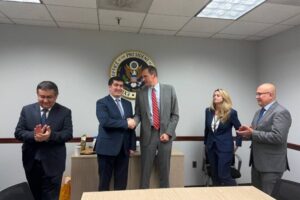
Uzbekistan has concluded bilateral negotiations with the United States on joining the World Trade Organization (WTO). The United States of America became the 21st country with which Uzbekistan has completed bilateral discussions on accession to the organization. The negotiations lasted for 14 months.
The parties are currently actively preparing to sign a market access protocol.
In September, Uzbekistan completed negotiations on WTO accession with 18 countries. Protocols on completion of market access negotiations were signed with Brazil and Sri Lanka.
At a meeting with entrepreneurs in August, the President of Uzbekistan called joining the WTO a thoughtful and far-sighted choice, as well as an integral part of Uzbekistan’s reforms.

Ukraine will file a lawsuit with the World Trade Organization (WTO) against Poland, Hungary and Slovakia over their refusal to lift the ban on Ukrainian agricultural products, Taras Kachka, Deputy Minister of Economy and Trade and Ukraine’s trade representative, told Politico.
“It is important to prove that these actions are legally unlawful. That’s why tomorrow we will start the court proceedings,” Kachka said last Sunday, adding that Kyiv is preparing to take retaliatory measures against Polish fruit and vegetable exports.
Commenting on the introduction of unilateral bans by Poland, Hungary and Slovakia on Ukrainian grain after the European Commission’s decision to lift the restrictions, Kachka said that “in our opinion, these measures by Hungary and Poland are a statement of total distrust of the European Commission.”
Ukraine’s trade representative believes that the open defiance of Brussels by Poland, Hungary and Slovakia was not just an internal EU matter, but caused what he called “the biggest systemic problem” – whether international trading partners can trust what Brussels says on behalf of the EU.
“For many years, the European Commission has been the mediator in trade negotiations and the trade policy institution for the entire EU. And we are used to working on this basis,” Kachka said, adding that, in his opinion, “the systematic approach of Budapest and Warsaw to ignore the position of the EU institutions in trade policy will be a problem for the EU as a whole, because there is no unity here.”
Kyiv plans to sue the three countries at the World Trade Organization rather than through its own trade agreement with the EU. “I think the whole world needs to see how EU member states behave toward their trading partners and their Union, because it can affect other states,” he emphasized.
While Slovakia simply extended the EU’s previous ban on four types of grain, Poland over the weekend introduced additional bans on Ukrainian flour and feed. Hungary, according to Kaczka, is going even further and banning 25 more products that were not previously discussed, including meat.
“These arbitrary bans are ridiculous. I think that Hungary is making a political statement here that it wants to block trade with Ukraine and completely ignore Brussels. And that’s why I think this is a very bold move against both of us by Budapest,” Kachka emphasized.
While Hungary’s additional bans are mostly symbolic, given that Ukraine does not export much beef and pork to the country, Poland’s measures will affect a significant portion of Ukraine’s exports, Kachka said. If Warsaw does not lift these additional bans, “we will be forced to take measures in response to additional products and ban imports of fruits and vegetables from Poland.”
The governments in Budapest and Warsaw have said they are acting to protect their farmers from a surge of Ukrainian produce that has led to lower prices, but Kaczka denied that reasoning is flawed: “The Polish ban will not help farmers, it will not affect prices because prices are global – what they do is based on public opinion.”
An EU official told the publication that Brussels hopes to solve this problem by forcing Kyiv to impose its own export restrictions in the event of a sudden surge in exports.
When asked about this potential agreement, Kachka said that Kyiv is ready to “take responsibility for ensuring that exports from Ukraine do not cause a tsunami in neighboring countries” and will introduce a system of “real-time” grain export licenses for both countries, which will slow down exports to neighboring countries and allow Ukraine to “react quickly” if a surge is detected.
As reported, the ban on the export of wheat, barley, rapeseed and sunflower seeds from Ukraine to Poland, Hungary, Slovakia, Romania and Bulgaria, introduced on May 2 for the period until June 5, was extended until September 15.
On Friday, September 15, the EU allowed the ban to be lifted after Ukraine promised to take measures to tighten export controls to neighboring countries. On the same day, Poland, Hungary, and Slovakia imposed unilateral bans on imports of Ukrainian agricultural products. In addition to wheat, rapeseed, sunflower, and corn, Poland banned imports of cereals and flour, while Hungary expanded the list to 25 items.
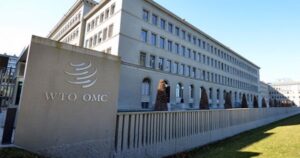
Ukraine may file a lawsuit against Brussels and European Union member states at the World Trade Organization (WTO) if they do not lift restrictions on the export of its agricultural products after September 15, Taras Kachka, Deputy Minister of Economy and Trade Representative of Ukraine, told Politico.
“With full respect and gratitude to Poland, if any bans are imposed after September 15, Ukraine will file a lawsuit against Poland and the EU at the World Trade Organization,” he said.
Ukraine’s trade representative insists that these restrictions violate the Free Trade Agreement, which has been in place between Ukraine and the EU since 2014.
“We do not intend to take immediate retaliatory measures, given the spirit of friendship and solidarity between Ukraine and the EU,” Kachka explained, adding that a systemic threat to Ukrainian interests would force Ukraine to take the case to the WTO.
In addition, Kachka told the newspaper that there is no evidence of price deviations or a significant increase in grain supplies to justify the extension of import restrictions. Kyiv has engaged in “constructive cooperation” with the European Commission, five EU member states, and Moldova, a key transit hub for Ukrainian exports to the EU.
“We have received significant support for ensuring better transit of goods through the territory of neighboring member states, including Poland and Hungary. In the last two months, we have made significant progress in cooperation with Romania on the transportation of goods from Ukraine,” Kachka said.
As reported, Deputy Head of the Presidential Office Ihor Zhovkva said in an interview with Interfax-Ukraine that if Brussels fails to take action against Poland, Hungary, Bulgaria, Slovakia and Romania, which violate the trade agreement, Kyiv “reserves the choice of legal mechanisms for response.”
Ukraine’s Foreign Ministry noted that Kyiv reserves the right to initiate arbitration proceedings under the Association Agreement with the EU or to apply to the WTO.
Source: https://www.politico.eu/article/ukraine-eu-wto-poland-hungary-grain-curbs/
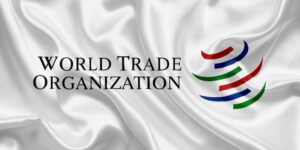
The World Trade Organization (WTO) has improved its forecast for world trade growth for 2022 to 3.5% from 3% expected in April, but significantly lowered the forecast for 2023 – to 1% from 3.4%.
“Global trade growth momentum will slow in the second half of 2022 and remain weak in 2023 due to multiple shocks in the global economy,” the organization said in a report released on Wednesday.
Import demand is expected to decline as the world’s major economies slow down for a variety of reasons.
“In Europe, high energy prices caused by the Russian-Ukrainian conflict will lead to a fall in consumer spending and higher costs for producers. In the US, monetary tightening will hit interest-sensitive sectors,” the report says. “China has to deal with outbreaks COVID-19, a decline in production, as well as weakness in external demand.”
Rising spending on fuel, food and fertilizer imports could lead to food shortages and debt problems in developing countries, the WTO warns.
“The global economy is facing a complex crisis,” said WTO Director-General Ngozi Okonjo-Iweala. “The picture for 2023 has become much bleaker.”
The organization also cut its global economic growth forecast for 2023 to 2.3% from 3.3%. In 2022, according to WTO estimates, the global economy will grow by 2.8%.
The report notes that the forecasts are accompanied by a high degree of uncertainty associated with the changing policies of the central banks of developed countries, as well as the unpredictable nature of the Russian-Ukrainian war.
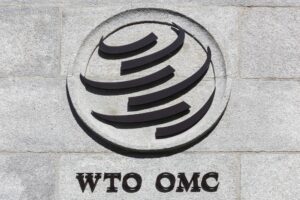
The World Trade Organization (WTO) has downgraded its forecast for global trade growth in 2022 from 4.7% (in the October version) to 3.0%, noting that the Russian war against Ukraine threatens the fragile recovery of world trade, the WTO report says. published on Tuesday.
The outlook for the global economy deteriorated after Russia’s invasion of Ukraine, “prompting WTO economists to reconsider their forecasts for world trade for the next two years,” the paper notes.
The organization now expects merchandise trade to grow by 3.0% in 2022, below its previous forecast of 4.7%, and by 3.4% in 2023. But these estimates are less accurate than usual because for the changing nature of the war, the authors of the review note.
“The most rapid economic impact of the crisis has been a sharp rise in commodity prices. Despite their small shares in global trade and manufacturing, Russia and Ukraine are key suppliers of essential commodities, including food, fuel and energy products and fertilizers, the supply of which is now Grain deliveries through the Black Sea ports have already been stopped, which could lead to serious consequences for the food security of poor countries,” the WTO said.
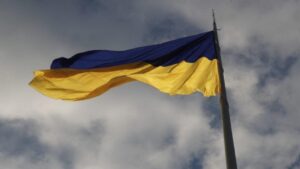
Ukraine has entered the Advisory Centre on WTO Law (ACWL), the Ministry of Economy said.
“On August 28, 2021, the protocol on Ukraine’s accession to the agreement on the establishment of the ACWL entered into force, our country has officially become a member of this international organization and can use its services,” the ministry said on the website on Monday.
The Ministry of Economy noted that membership in the center provides an opportunity to receive free legal advice on WTO law and free training services, as well as legal assistance during the resolution of disputes within the WTO for a lower fee than a fee to law firms on a commercial basis (with a 40% discount to the established hourly base rate).
The Advisory Centre on WTO Law is an international organization founded in 2001 to provide legal assistance to developing countries. The Consulting Center includes 12 developed countries and 39 WTO members that are developing. The Verkhovna Rada ratified the corresponding protocol on June 15, 2021.